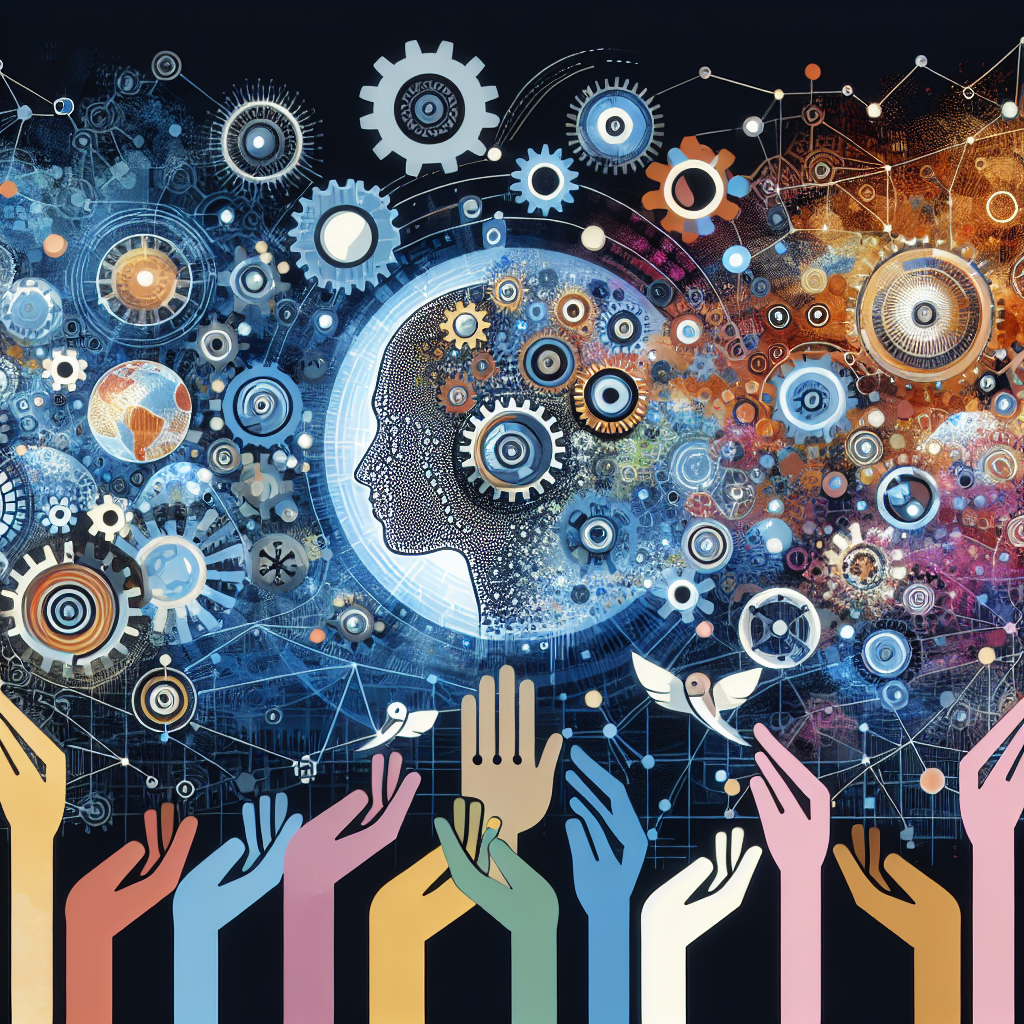Artificial Intelligence (AI) has become one of the most transformative technologies of our time, with the potential to revolutionize industries, improve efficiency, and enhance the quality of life for people around the world. However, as AI continues to advance at a rapid pace, there is a growing concern about the potential impact it may have on society. In order to ensure that AI benefits everyone and is used ethically and responsibly, it is crucial to democratize AI and bridge the gap between technology and society.
What is Democratizing AI?
Democratizing AI refers to the idea of making AI accessible to everyone, regardless of their technical expertise or background. It involves empowering individuals and communities to use AI to solve real-world problems, create new opportunities, and drive innovation. Democratizing AI also involves promoting transparency, accountability, and inclusivity in the development and deployment of AI technologies.
Why is Democratizing AI important?
Democratizing AI is important for several reasons. First and foremost, AI has the potential to significantly impact society in a variety of ways, from healthcare and education to transportation and finance. In order to ensure that AI is used in a way that benefits everyone and minimizes harm, it is essential to involve a diverse range of voices and perspectives in the development and deployment of AI technologies.
Second, democratizing AI can help to address concerns about bias, discrimination, and inequality in AI systems. By involving a wider range of stakeholders in the design and implementation of AI technologies, we can help to identify and mitigate potential biases and ensure that AI is used in a fair and equitable manner.
Finally, democratizing AI can help to foster innovation and creativity by enabling more people to experiment with AI tools and techniques. By lowering the barriers to entry and making AI more accessible, we can empower individuals and communities to explore new possibilities and develop innovative solutions to complex problems.
How can we democratize AI?
There are several ways that we can democratize AI and bridge the gap between technology and society. One approach is to invest in education and training programs that provide people with the skills and knowledge they need to work with AI. This includes programs that teach coding, data science, and machine learning, as well as programs that focus on the ethical and social implications of AI.
Another approach is to promote diversity and inclusivity in the AI field. This includes encouraging more women, people of color, and other underrepresented groups to pursue careers in AI, as well as involving a diverse range of stakeholders in the development and deployment of AI technologies.
Additionally, we can promote transparency and accountability in AI by requiring developers to explain how their AI systems work, what data they use, and how decisions are made. This can help to build trust and confidence in AI systems and ensure that they are used in a responsible and ethical manner.
Finally, we can encourage collaboration and knowledge-sharing in the AI community by creating platforms and networks that allow researchers, developers, and policymakers to exchange ideas, resources, and best practices. This can help to foster a culture of openness and collaboration in the AI field and facilitate the development of innovative and impactful AI solutions.
Frequently Asked Questions about Democratizing AI
Q: What are some examples of democratizing AI in action?
A: One example of democratizing AI is the development of AI tools that are accessible and easy to use for non-experts. For example, Google’s AutoML platform allows users to create custom machine learning models without any coding experience. Another example is the use of AI in healthcare to improve patient outcomes and reduce costs. For example, IBM’s Watson for Oncology uses AI to help doctors make more accurate and personalized treatment decisions for cancer patients.
Q: How can individuals get involved in democratizing AI?
A: Individuals can get involved in democratizing AI by taking online courses in AI, machine learning, and data science, participating in hackathons and competitions, and joining AI communities and networks. Individuals can also advocate for transparency, accountability, and inclusivity in the development and deployment of AI technologies.
Q: What are some challenges to democratizing AI?
A: Some challenges to democratizing AI include the lack of access to resources and training, the potential for bias and discrimination in AI systems, and the complexity and opacity of AI algorithms. Additionally, there are concerns about the impact of AI on jobs, privacy, and security, as well as the potential for misuse and abuse of AI technologies.
In conclusion, democratizing AI is essential for ensuring that AI benefits everyone and is used ethically and responsibly. By empowering individuals and communities to use AI, promoting diversity and inclusivity in the AI field, promoting transparency and accountability in AI systems, and fostering collaboration and knowledge-sharing in the AI community, we can bridge the gap between technology and society and create a more just and equitable future for all.

